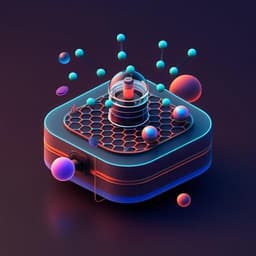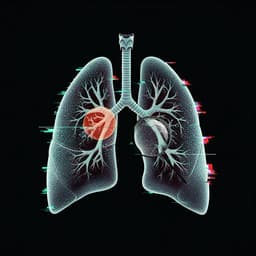
Engineering and Technology
Efficient water desalination with graphene nanopores obtained using artificial intelligence
Y. Wang, Z. Cao, et al.
This groundbreaking research by Yuyang Wang, Zhonglin Cao, and Amir Barati Farimani introduces a cutting-edge AI framework that harnesses deep reinforcement learning and convolutional neural networks to design unparalleled graphene nanopores for water desalination, showcasing significant advancements in efficiency and performance over traditional methods.
~3 min • Beginner • English
Related Publications
Explore these studies to deepen your understanding of the subject.







